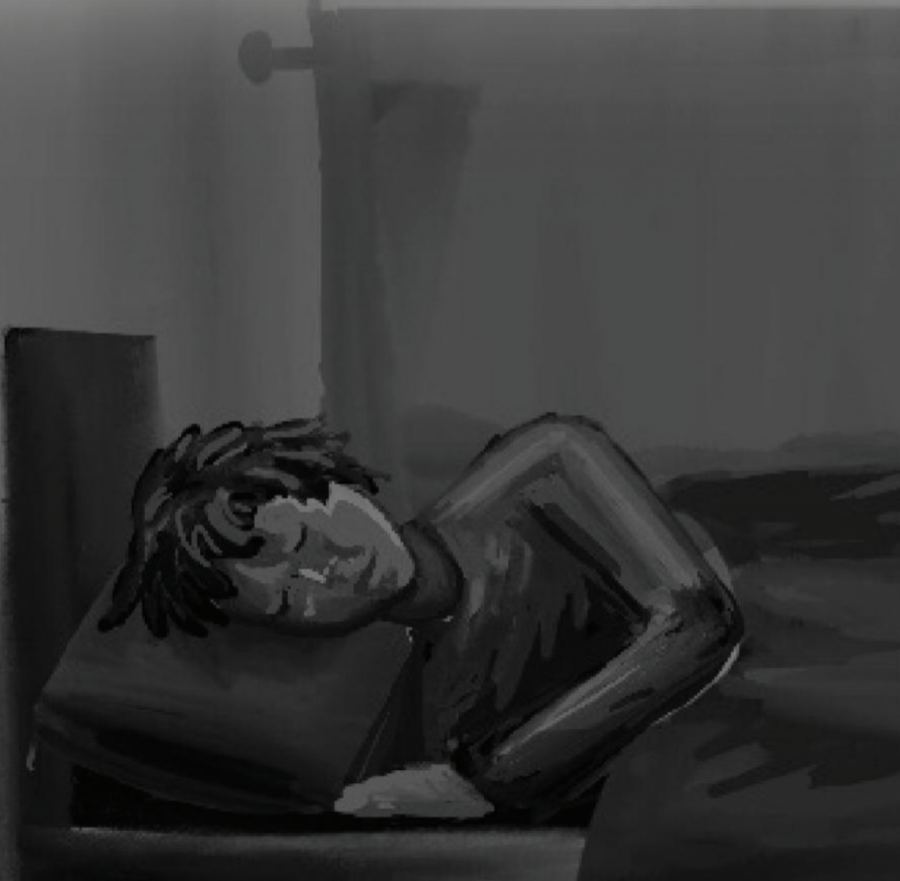Con: Should students sacrifice sleep to study for upcoming tests?
According to the Centers for Disease Control and Prevention (CDC), over 70% of high school students get fewer than the recommended eight to 10 hours of sleep a night. The main contributing factor is academics: many teenagers report receiving over 15 hours of homework a week. School, extracurriculars and social media also claim hours of teens’ precious time. Although it may be tempting to stay up later in order to complete schoolwork, sleep deprivation can have devastating effects on students’ physical and mental health and hurt academic performance in the long run.
Losing sleep can disrupt the levels of hormones in a student’s body, increasing the risk of mental illness, obesity, cancer and even death. According to research by Johns Hopkins Medicine, adults who get fewer than five hours a night showed a 33% increase in risk for dementia, a 48% increase in risk for heart disease and a 36% increase in risk for colorectal cancer. The results are even more catastrophic for teenagers, who need sleep to restore and repair their rapidly-developing brains. In addition to hurting physical health, sleep deprivation can also negatively impact students’ mental health. Sleep problems can result from and exacerbate existing mental health issues, and research shows that inconsistent sleep patterns can also lead to feelings of depression and anxiety. No matter how pressing an essay due the next day might be, no assignment is worth risking an individual’s long-term health and well-being.
Not only is staying up late for school detrimental to one’s health, but it also negatively affects a student’s critical thinking and judgment. Academic performance significantly decreases after a restless night. In fact, when students already know most of the material in their assignments or exams, sleep helps them retain information better the following day. While last-minute studying can seem appealing in the short run, sleep is the key to long-term academic success.
There are numerous meaningful alternatives to staying awake past midnight to finish assignments. First, students can take classes that have a manageable workload and fit reasonably within their schedule. A high school student’s time is finite, so restricting participation to classes and extracurricular activities can result in more consistent sleep schedules. Additionally, getting home from school and immediately taking a nap or going on social media is a common phenomenon. However, being unproductive in the afternoon means students have to make up their work late at night. Capitalizing on the momentum from school or extracurricular activities and completing homework immediately upon returning home can lead to much healthier sleep habits. Overall, staying up late for school is completely unnecessary as long as students are only participating in classes and extracurriculars that they truly find interesting, practicing good time management and prioritizing their health.
Staying up late is not only an inconvenience, but a true health risk. Although going to bed past 2 a.m. has become disturbingly normalized and sometimes even worn as a badge of honor, for high school students, completing a few assignments is not worth the long-term consequences of sleep deprivation. If students ever find themselves deciding between studying for that chemistry exam the next day or going to bed, they should choose the latter option. Their grades and their bodies will thank them for it later.
Your donation will support the student journalists of Henry M. Gunn High School. Your contribution will allow us to purchase equipment and cover our annual website hosting costs.

On staff since January 2021, junior Carly Liao is a Forum editor for The Oracle. Outside of the newspaper, she enjoys running, doing crossword puzzles...


